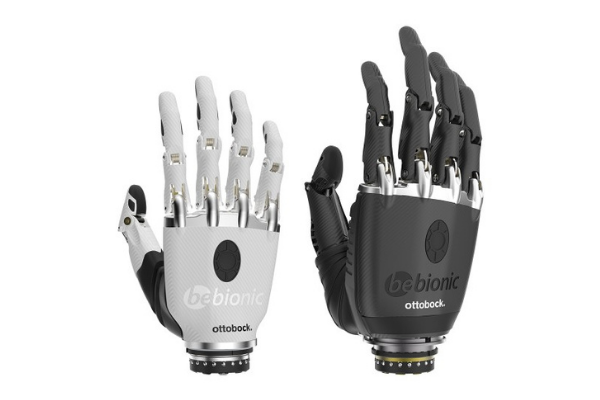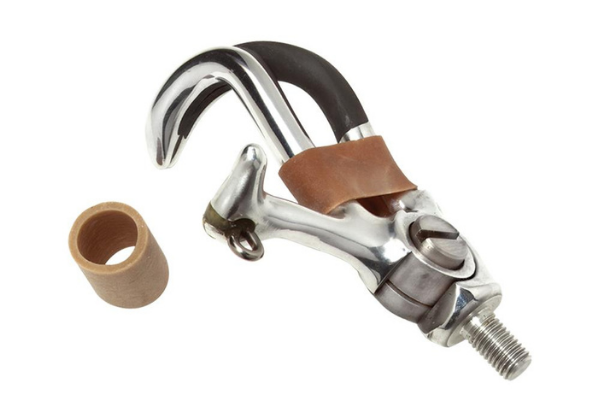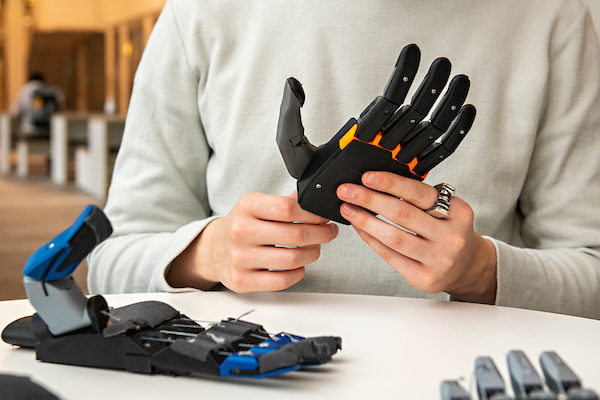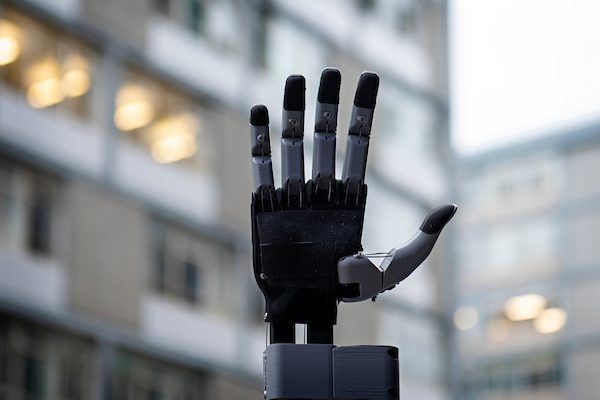Metacarpal
Metacarpal was founded by two university students, Fergal Mackie and James Swinburne, with the aim to create a new and innovative design to improve the lives of those with upper limb differences.
Metacarpal is a prostheses design and manufacture company that aims to make a difference. Their first flagship product is a prosthetic arm which is currently in development. Fergal and James intend to outperform their competitors in the industry, by creating a prosthetic arm with superior design and functionality, at a lower cost than anything currently available.
Their research suggests that despite some positive attributes, bionic and myoelectric hands (both pick up signals from muscles in the arm) are slow, unreliable and very expensive. This means that for quick and easy functionality, 55% of UK users prefer to use body-power, with split hooks being the most popular devices.
We spoke to Fergal about what inspired him, along with co-founder James, to embark on the Metacarpal journey, what challenges they encountered, and their future plans.
What inspired you to start Metacarpal?
As a product designer, I am always looking for problems. So, when I came across the devastating upper-limb prosthetics’ dissatisfaction rates and soaring prosthesis abandonment, this struck me as a huge problem.
Speaking to experts in the field only strengthened this as this is an area that has essentially stagnated for decades. It seemed extraordinary to me that hook prostheses are still being used, and that they are the most popular devices on the planet. Clearly, they have something that the electronic devices are lacking, and this is what set me on a journey to update the design into the form of a hand.
When Fergal and James applied for the £500 Pounds for Purpose award, they had just completed their first product test. They had been prototyping all summer, with mixed success, to develop their design.
What did the Pounds for Purpose funding enable you to do?
We paired the Pounds for Purpose funding with a Scottish Enterprise grant which meant we could cover the cost of an Intellectual Property Audit. This searched the available intellectual property in the space that we were operating in, finding if there were any designs we were infringing on, and if our design was patentable. This exercise was incredibly useful as it has given us the clear that this is an area we may develop in, as well as given Metacarpal credibility as an innovative design company.
What did you find most challenging in setting up?
As a new entrepreneur, people want to help and are always offering advice. This is good, although it does come with the caveat that one person’s advice may contradict another and leave you in a position where you do not know which way to go. Selecting the right path has been a major challenge, and something that I entirely expect to reappear. However, with my experience, I believe we will be able to overcome this.
What are your plans for the future of Metacarpal?
In the short term, we need to get some clinical feedback on our products that will drive further developments. We aim to grow our team, to get more expertise, so that when the product is released it is a fantastic design that will help amputees. This is our long term ambition.
Any tips for other social entrepreneurs?
There is no greater asset than being friendly. In any enterprise, you will need help to make it work, just make sure you are being someone who people want to work with.
Keep up to date with design progress and watch videos of the hands in action on the Metacarpal website.




